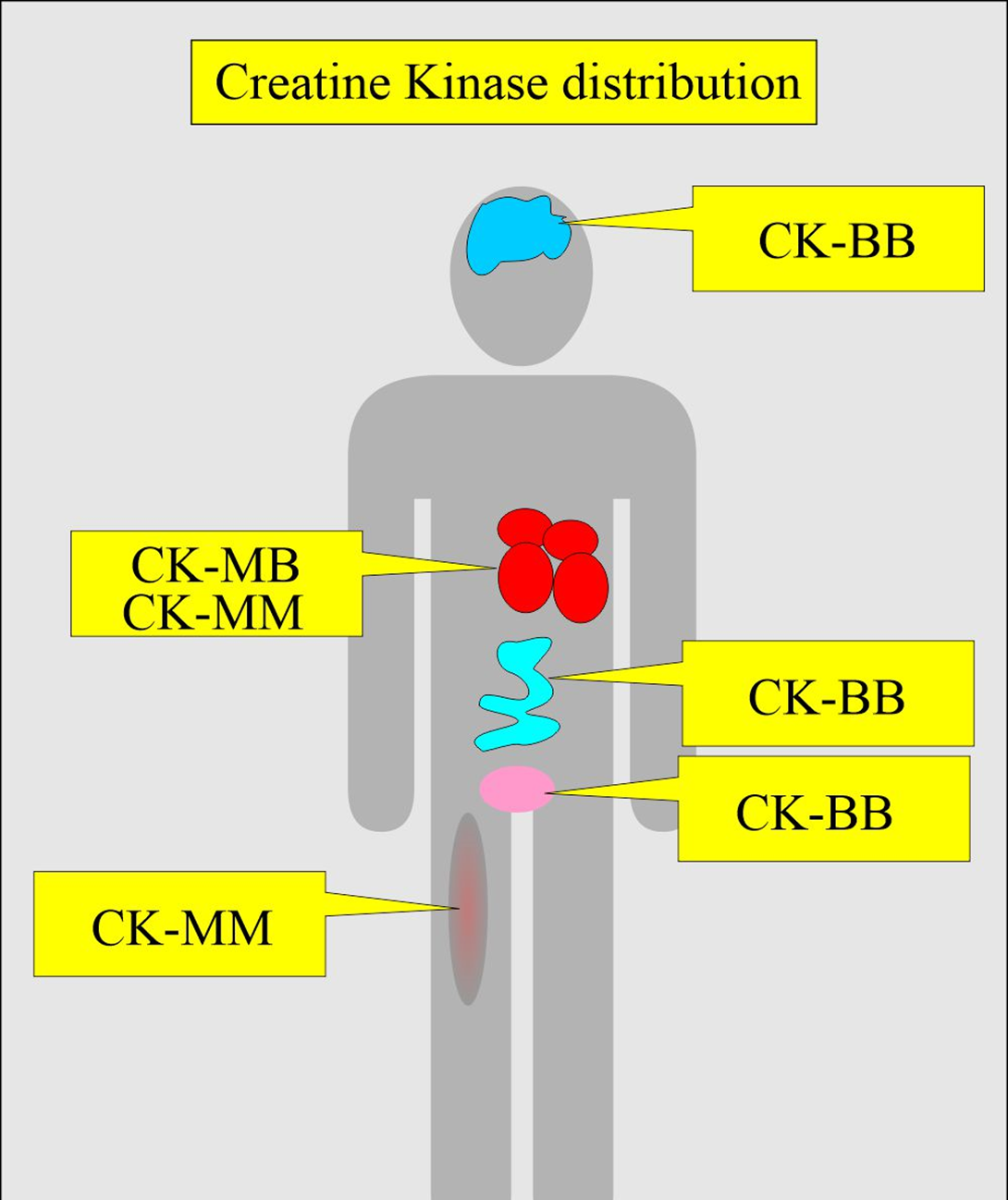A client taking atorvastatin develops an increased serum creatine phosphokinase (CK) level. The nurse should assess the client for the onset of which problem?
Muscle tenderness.
Nausea and vomiting.
Excessive bruising.
Peripheral edema.
The Correct Answer is A
Choice A reason: Muscle tenderness is a sign of myopathy, a rare but serious adverse effect of atorvastatin and other statins. Myopathy is characterized by muscle weakness, pain, and elevated CK levels. CK is an enzyme that is released when muscle tissue is damaged. The nurse should monitor the client for muscle tenderness and report any changes to the prescriber.
Choice B reason: Nausea and vomiting are common side effects of atorvastatin, but they are not related to CK levels. The nurse should advise the client to take the medication with food and fluids to minimize gastrointestinal discomfort.
Choice C reason: Excessive bruising is not a typical side effect of atorvastatin, nor is it associated with CK levels. The nurse should assess the client for other possible causes of bleeding, such as coagulation disorders, trauma, or drug interactions.
Choice D reason: Peripheral edema is not a common side effect of atorvastatin, and it is not related to CK levels. The nurse should assess the client for other signs of fluid retention, such as weight gain, shortness of breath, or jugular venous distension. The nurse should also check the client's blood pressure and heart rate, as peripheral edema may indicate heart failure or hypertension.

Nursing Test Bank
Naxlex Comprehensive Predictor Exams
Related Questions
Correct Answer is D
Explanation
Choice A reason: Spinach and other green vegetables are rich in vitamin K, which is essential for blood clotting. However, dabigatran is not affected by vitamin K intake, unlike warfarin, another anticoagulant drug. Therefore, there is no need to eliminate these foods from the diet.
Choice B reason: Dabigatran does not require routine laboratory monitoring of bleeding parameters, such as prothrombin time (PT) or international normalized ratio (INR), unlike warfarin. Therefore, the client does not need to continue obtaining scheduled laboratory bleeding tests.
Choice C reason: Dabigatran is a direct thrombin inhibitor that prevents the formation of fibrin, the main component of blood clots. In case of a major bleeding event, the antidote for dabigatran is idarucizumab, a monoclonal antibody that binds to dabigatran and reverses its effect. However, this antidote is not readily available in most settings and should only be administered by a health care provider. Therefore, the client should not keep an antidote available at home.
Choice D reason: NSAIDs, such as ibuprofen or naproxen, can increase the risk of bleeding by inhibiting platelet aggregation and damaging the gastric mucosa. Therefore, the client should avoid using these drugs while taking dabigatran. The client should consult with the prescriber before taking any other medications, including over-the-counter or herbal products.
Correct Answer is D
Explanation
Choice A reason: Using the eye drops until the excess pressure is reduced is not an accurate response, as it implies that the eye drops are only a temporary treatment. Open-angle glaucoma is a chronic condition that causes increased pressure in the eye due to impaired drainage of the aqueous humor. The eye drops are used to lower the eye pressure and prevent further damage to the optic nerve. The client will need to use the eye drops for the rest of their life, unless the healthcare provider advises otherwise.
Choice B reason: Using the eye drops for long-term control of pain and swelling is not an accurate response, as it does not address the main goal of the treatment. Open-angle glaucoma does not usually cause pain or swelling, as the pressure builds up gradually and painlessly. The eye drops are used to lower the eye pressure and prevent vision loss, not to relieve inflammation or discomfort.
Choice C reason: Using the eye drops until a smaller angle can be restored is not an accurate response, as it confuses open-angle glaucoma with closed-angle glaucoma. Open-angle glaucoma is characterized by a wide and open angle between the iris and the cornea, which allows the aqueous humor to flow freely. Closed-angle glaucoma is characterized by a narrow or closed angle that blocks the drainage of the aqueous humor. The eye drops are used to lower the eye pressure and prevent further damage to the optic nerve, not to change the angle of the eye.
Choice D reason: Using the eye drops for long-term control of normal eye pressure is the most accurate response, as it reflects the purpose and duration of the treatment. Open-angle glaucoma is a chronic condition that requires lifelong management. The eye drops are used to lower the eye pressure and prevent vision loss, which can occur if the pressure is too high for too long. The client should use the eye drops as prescribed and follow up with the healthcare provider regularly.
Whether you are a student looking to ace your exams or a practicing nurse seeking to enhance your expertise , our nursing education contents will empower you with the confidence and competence to make a difference in the lives of patients and become a respected leader in the healthcare field.
Visit Naxlex, invest in your future and unlock endless possibilities with our unparalleled nursing education contents today
Report Wrong Answer on the Current Question
Do you disagree with the answer? If yes, what is your expected answer? Explain.
Kindly be descriptive with the issue you are facing.
